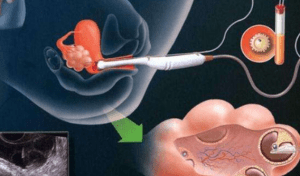the lastKyrgyz surrogacyIsn't it?"Legal cover and clarity of parental authority"? Spend hear"(particle used for comparison and "-er than")Surrogacy in the United StatesIt's a lot cheaper.", but how much of the real budget is to be set aside, and what must be paid up front and what phased in? Isn't it.Single people can do it tooOr only married? If you don't figure this out, every step behind you is like stepping on a mine.
For today's installment, we putKyrgyz legal chassis and three-tier budgetBreak it down and make it clear: not just the numbers, but why, where, and when the money should be spent; and also which promises sound good, but actually have potholes.
I. Legality of surrogacy in Kyrgyzstan and overall cost budgeting
Is Kyrgyz surrogacy protected by law?
The core conclusions are stated up front: there is a clear legal framework for surrogacy in Kyrgyzstan, and the foundation stone of a new law is laid (2024).
gauge Law on the Protection of the Health of Citizens of the Kyrgyz Republic (January 12, 2024, No. 14)The State has clarified the legality and procedural requirements for assisted reproduction and surrogacy within a public health framework; several legal/industry interpretations also cite directly Article 57 Discuss "The right to surrogacy and third-party assisted reproduction". This means:
- A surrogacy agreement can be legally signed (usually in writing and notarized locally), with supporting formalities such as parental rights/travel documents after the birth; this is the key "ground level" of the practice.
- Industry interpretations generally say that the lack of marital status as a limiting condition, i.e., "Citizens have the right to become parents through third-party assisted reproduction regardless of marital status"(Paraphrased version; based on article 57).
⚠️ Attention requiredThis is a second-hand interpretation, the public version of the official text is commonly found in legal databases and scanned documents, the specific implementation of the notary public/hospitals/courts and immigration authorities of the caliber of the actual practice shall prevail. It is recommended to have a local attorney check this before signing."Marital status, registration of parental authority, birth certificates, cross-border travel documents"These hard points.
practical pointThe contract needs to be notarized; if the surrogate mother is married, spousal consent is usually required; and access criteria such as age of the surrogate mother, previous births, and medical/psychological assessment are mostly enforced by agencies and hospitals in accordance with local regulations (common paradigms: 20-40 years old, history of normal births, and physical and mental health). These are not standardized across the country, but they are hard levers in agency compliance and hospital ethical review.
Our attitude:
Legal compliance is fine, but don't try to "cut corners". The new law in Kyrgyzstan "gives the right name" to the channel, but the registration of parental authority and cross-border documents have technical details at every step, and the more "simple and committed" the package, the more important it is to read the contract and the path of the process, so as not to leave the post-birth formalities to the last minute.
How much will it really cost to go to Kyrgyz Surrogacy in 2025? An overview of high, medium and low budget options
Industry public offers vary widely - strongly correlated with package configuration (self/donor eggs, inclusion of PGT-A, inclusion of multiple transplants and follow-ups, level of delivery hospital, depth of legal and translation services, landing of newborn documents and travel documents, inclusion of NICU planning, etc.). Based on the range of several public offers, we combine the necessary items + high probability items in real operations to give you an executable "Three-tier budget", to facilitate the inventorying of the accounts:
Conversion Reminder: Different official websites with the dollar / euro / ruble price, the following unified conversion to the dollar range to facilitate the horizontal ratio (for planning purposes only, to sign real-time terms and conditions shall prevail).
| gear level (i.e. first gear, high gear etc) | Applicable People and Characteristics | The core contains | Total budget (USD) | note |
|---|---|---|---|---|
| Basic Throttle Gear | Self-eggs, ready frozen embryos or no PGT-A; accept public or cost-effective hospitals; process as "spend-as-you-need" as possible | 1 egg retrieval/transfer, basic medication, routine maternity testing, local legal/notary, basic translation matching | $55,000 - $65,000 | No higher-order complications with multiple transplants; high tolerance for success and time. |
| Balanced and secure gear (recommended) | Pursuing the key risks all at once: PGT-A, including 2 transplants, private delivery, legal and documentary process, the whole chain of events. | Egg retrieval + embryo culture + PGT-A, 2 transfer credits, newborn documentation, attorney review, private obstetrics maternity packages | $70,000 - $85,000 | This is where most families end up; more balanced in terms of cost/time efficiency. |
| Advance Saving Gear | Expect more certainty and fewer round trips: all-inclusive/multiple transplants/"all-inclusive" frameworks (read the terms and conditions carefully), high-end private, VIP interpreters and chaperones | Multi-transplant cap, private tertiary obstetrics, exclusive legal and documentation green channel, complication fund buffer | $90,000 - $110,000+ | Be sure to read the limitations of the "package" (embryo quality, number of transfers, exceptions for twin/premature births, etc.). |
Why do you see $30,000 to $60,000 and $50,000 to $100,000 online?
This is because the quotes are of different calibers: some are labeled "basic medical care" (excluding surrogate mother's compensation/legal affairs/documentation/delivery), some are labeled "all-inclusive" (including multiple transplants and documentation), and some are in euros. PutEmbryo Testing (PGT-A), Surrogate Mother Compensation, Newborn Documentation and Travel Documents, Complications and NICU BufferingAdd it in and the total will wash out to you closer to the real "landed cost" Don't be afraid of big numbers, be afraid of missing items -One omission = additional expenditure at a later stage + cost of timeThe
II. Core components of surrogacy costs: dissecting every expense in the Kyrgyz surrogacy package
Let's start with a principle: the budget is not "a total price", but a series of nodes + the superposition of several options. Spread out the list, you know where you can save, where you must not save.
Medical cost checklist: where does the money go, from genetic testing (PGT) to embryo transfer?
The medical segment is the "hard core cost". Different hospitals, medication regimens, whether or not to do PGT-A, whether or not to do multiple transplants, the difference in price can make a big difference. Here's a table to help you put your money where your mouth is:
| module (in software) | Frequently Asked Questions | Typical range (USD) | Key Remarks / Can you save |
|---|---|---|---|
| Egg Collection and Laboratory (IVF) | Ovulation, egg retrieval, fertilization, blastocyst culture | $6,500-$9,500 | No blind savings; physician protocols and laboratory standards determine embryo quality and quantity |
| Drugs (female) | Ovulation induction/inhibition, luteal support | $1,200-$2,500 | Depends on ovarian function; high AMH does not necessarily mean low medication use |
| Embryo freezing and annual storage | Frozen filing, first year of storage | $600-$1,000 | Essential; remember to renew storage when it expires |
| Embryo resuscitation/transfer | Thaw resuscitation, primary transplantation | $1,000-$1,800/times | Second grafts to be budgeted separately (see if included in contract) |
| PGT-A Chromosome Screening | Sampling + Sequencing | $200-$350 per piece (often estimated at 5-8 pieces) | recommend(especially ≥35 years/repeated failures) |
| Medical evaluation of surrogate mothers | Endometrial, hormonal, infectious disease screening | $500-$900 | Pass rate is not 1001 TP3T, failure requires rescreening |
| labor inspection | Routine ultrasound, labs, glucose tolerance, non-invasive/NIPT | $1,200-$2,000 | Non-invasive/NIPT mostly extra billing |
| labor | Nulliparous/Cesarean section, hospitalization, anesthesia | $2,800-$5,500 | Hospital level, complications greatly affect |
| neonatal | Newborn screening, vaccines, medical examination of documents | $300-$800 | NICU extra (see "Hidden costs") |
What's the trade-off?
- Should PGT-A be saved? advanced age/polycystic/repeated failure populations.Not recommended to save; Those who are young and have many embryos can be tested in limited numbers (start with 5-6 and stop when you have enough).
- Transplant packages are prioritized: When the budget allows, putAt least 2 transplantsWrite it into the contract and actually save more money.
- Birthing hospitals: Not superstitious about "most expensive", butCompetence in emergency obstetric care must be over the line; ask about the caliber of billing for cesarean section increases, night surgery, and anesthesia.
Compensation for Loving Surrogate Mothers: Payment Criteria, Disbursement Nodes, and Administrative Costs in Detail
It's easy to "listen to the numbers and not look at the structure" of the cost of the surrogate segment. Don't do that. What you need to look at isStructure + Nodes--Who got how much when and for what.
| make up | common practice | Typical range (USD) | Remarks / Risk Points |
|---|---|---|---|
| Basic compensation | Issued in stages or on a monthly basis | $14,000-$20,000 | in order toFetal Heart ConfirmationMore secure starting point for issuance |
| Daily allowance | Nutrition/transportation/communication | $150-$250 per month | Recommended monthly payments + filing of bills |
| Clothing allowance | Pregnancy Clothing | $200-$400/session (1-2 sessions) | Indicate the point of issuance |
| Embryo transfer allowance | Additional per transplant | $200-$400/session | Failed transplants should also be issued (written into the contract) |
| Allowance for intrusive operations | Amniocentesis/Induction of labor/Surgical operations | $300-$1,000/times | Clarify trigger conditions and medical orders |
| Multiple/reduced birth subsidies | Twin/reduced-fetus subsidy | $1,000-$3,000 | High risk of multiple births, try to have a single child |
| Incentives for childbirth | Vaginal/Cesarean section differentiation | $500-$1,500 | Incremental costs for caesarean sections are shown separately to avoid duplication |
| lost-time allowance | Leave of absence/post-natal recuperation | Depending on local income ($600-$1,500) | Employer's certificate/self-employment statement required |
| postnatal care | Postnatal review, nutrition | $200-$500 | Make lists and avoid verbal commitments |
| Custodial and Regulatory Fees | Third-party escrow accounts | $400-$800/year | Must be hostedRejection of personal escrow |
How is the logic of distribution set to be stable?
- "Fetal Heart Confirmation" Safest as a starting point for large amounts; previously only small subsidies and allowances.
- Dual track by month + milestone: Stabilizing small monthly payments, with milestone payments during late pregnancy and delivery, takes care of the surrogate mother and reduces the risk of "sudden default".
- The custodial special account cannot be omitted: All entries and exits are traced for audit and dispute purposes.
⚠️ Multiple fetuses may seem like a "win", but they are actually a medical and legal risk: don't gamble with the health of the baby and the surrogate mother - stick to single embryo transfers, that's what we always recommend.
Agency Service Fee Comparison: How to Choose a Reliable Kyrgyzstan Surrogacy Agency?
The agency fee is not a "brokerage", but a system integration service fee: screening surrogate mothers, coordinating medical care, legal affairs and notarization, translation and docking, document processing, landing and transportation ...... The "value" of an agency is reflected in its "value", and in its "value", and in its "value". The "value" of an agency is reflected inRisk control and deliveryOn two things.
| paradigm | Agency service fee (USD) | sphere of competence | Fits the crowd | Core risks |
|---|---|---|---|---|
| low-cost aggregator | $3,000-$6,000 | Simple docking, loose outsourcing | Extremely tight budget, willing to personally monitor the process | many breakpoints: Legal/Medical/Surrogate motherhood regulation is missing the loop and "kicks the can down the road" when things go wrong. |
| Standard Compliance Module Type (Recommended) | $7,000-$12,000 | Established hospital/attorney/notary partnership, process SOP, escrow auditable | Trying to balance value for money and security | Need to verify the authenticity of the list of partners and contingency plans |
| High-end Delivery Type | $12,000-$18,000+ | Dedicated legal services, emergency green passes, documents in place, accompanied by the whole process | Want to fly less, step in fewer potholes, and have high time value | Don't be fooled by "all-inclusive".itemized listmost critical |
Agency Screening 7-question checklist (highly recommended to include itemized attachments to emails/contracts)
- Who is the regular partner hospital and chief fertility doctor? Can you give a true sample caliber of the average number of transplants/live birth rate?
- What are the criteria for admission to the surrogate mother bank and the elimination rate? Is a desensitized version of the Psychological Assessment and Family Interview available?
- Does the legal team practice locally? Who is the gatekeeper for contract language and notarization paths?
- escrow accountof subjects, frequency of reconciliations, and does it support independent audits?
- Average time taken from signing to transplant? What happens if it takes more than X weeks (cost delay compensation clause).
- How to settle the cost of a second transplant after failure(What are the drug/surgery/surrogate benefits)?
- Are the timetable and list of materials for labor and delivery and newborn documentation available in paper form at the outset?
A word from the heart:
"Is expensive always stable?" --Not necessarily; "Is the cheap one the pits?" -- also not necessarily. The real thing to look at isProcess closuretogether withAbility to handle failure scenarios: An organization with escrow, legal, and preplanning is worthy of your time and trust.
Kyrgyz surrogacy full-cycle process: 10 key cost payment nodes from signing to carrying the baby home
Keep this in mind: money only arrives at the nodes, and the nodes must be conditional. Each sum of money must be tied to the "results/actions" trigger, and written into the contract (or appendix), otherwise it is easy to "pay first and then wait, the more you wait, the more passive".
Cost overview timeline (sample 9-16 month full cycle)
For planning purposes only, the true cycle depends on medical screening, embryo status and efficiency of documentation.
- Phase: Node 1: Signing
- time window (relative to contracting): T0
- Key milestones:: Tripartite or quadripartite contracts signed and escrow accounts opened
- Expenses payable (trigger):: Deposit/institutional down payment (consideration: start-up services + surrogate mother screening); escrow account capitalization (dedicated account only, non-transferable if not triggered)
- Stage: Node 2: Medical Assessment
- time window: T0+1-3 weeks
- Key milestones:: Client/surrogate mother is medically cleared and notarized.
- Expenses payable (trigger):: Screening and assessment fees (quid pro quo: completion of report); re-screening/replacement at agency's expense if failed
- Phase: Node 3: Surrogate Matching
- time window:: T0+2-6 weeks
- Key milestones:: Candidates for surrogate mothers are medically and psychologically evaluated and signed off on their match
- Expenses payable (trigger):: Small match lock-in (consideration: lock-in + access to legal audit), failure/withdrawal should be fully refundable
- Phase: Node 4: Legal Affairs and Notarization
- time window:: T0+4-8 weeks
- Key milestones:: Contracts localized, signed, notarized and completed
- Expenses payable (trigger):: Legal and notary fees (consideration: notarized text and file number issued)
- Stage: Node 5: Egg retrieval/embryo culture
- time window:: T0+6-10 weeks
- Key milestones:: Egg retrieval completed, blastocysts formed and frozen
- Expenses payable (trigger):: IVF and medication costs (consideration: lab records + list of number of blastocysts)
- Phase: Node 6: PGT-A (optional)
- time window: Adjacent to node 5
- Key milestones:: Testing completed and reports issued
- Expenses payable (trigger):: PGT-A testing fee (per unit, billed only when a report is issued)
- Phase: Node 7: First migration
- time window:: T0+10-16 weeks
- Key milestones:: Endothelialization of surrogate mothers and completion of transplantation
- Expenses payable (trigger):: Transplantation surgery fee + transplantation allowance (consideration: surgical record + ultrasound screenshot)
- Phase: Node 8: Fetal Heart Confirmation
- time window: 6-7 weeks post-transplantation
- Key milestones: Fetal heart seen on ultrasound, hCG up to standard
- Expenses payable (trigger): First installment of surrogate base compensation (large) + Initiation fee for pregnancy management (consideration: report on hospital letterhead)
- Stage: Node 9: Late middle pregnancy
- time window: 20-32 weeks of pregnancy
- Key milestones: Routine labor and delivery tests, glucose test, NIPT, etc.
- Expenses payable (trigger):: Monthly allowances are paid on an ongoing basis; additional charges for complications are advanced by escrow and reconciled at the end of the month
- Phase: Node 10: Childbirth and documentation
- time window:: Due date ± 2 weeks
- Key milestones:: Settlement of births, documentation of newborns and travel documents.
- Expenses payable (trigger):: Settlement of hospitalization fees for childbirth; newborn documentation/travel permits; final payment for surrogate mothers and incentives for childbirth (consideration: hospital discharge summary + copy of birth certificate + receipt of document acceptance).
Phase I (initiation): cost nodes for contracting, medical examination and surrogate matching
- 1|Contracting and Hosting (Node 1)
- Must be conditionalized: Agency down payment only at signing (can be stepped up); rest of budget hitcustodian special accountThe payment is not considered "paid" unless the agreed conditions are triggered.
- Hosting three-piece suite: Dedicated Account Agreement + Reconciliation Frequency + Arbitration Clause.Rejection of personal account escrowThe
- "Protective clauses" that can be written: Agency reduction/refund if surrogate mother's candidate list is not completed within X days; weekly deduction of service fee Y% for overtime.
- 2|Medical Examination and Evaluation (Node 2)
- The commissioning party: Female (or egg donor) hormones/ovarian reserve, male semen analysis; abnormalities treated before proceeding to IVF.
- Substitute mother: Infectious diseases, gynecology, uterine environment, psychological assessment and home visits.
- Paid Trigger: Get a passing report and then settle the appraisal fee; if it fails, the agency bears the cost of rescreening/replacement written into the contract.
- 3|Replacement Matching and Locking (Node 3)
- Principles: Don't look at the "selfie", just look at the "selfie".Fit and Compliance" (age, previous history of normal labor, BMI, family support).
- Costs: Small lock-in payment; 100% refunded if terminated due to failure of surrogate's medical examination.
- Minefield: Don't look at one candidate at a time--At least 2-3 candidates in parallelThe time is more manageable.
Stage 2 (Medical): Payment Process for IVF Cycle and Embryo Transfer
- 4|Egg collection and embryo cultivation (Node 5)
- Pay Points: Ovulation drugs are usually paid in advance; egg collection/implantation fees are settled on the day of the procedure or at the time of reporting out of the laboratory.
- Results-based quid pro quo: Laboratory log (number of eggs retrieved, fertilization rate, number of blastocysts), freezing list.
- Egg supply/donation: For additional compensation and legal texts, be sure to check out the Node 4 (Legal) Sign it before.
- 5|PGT-A (node 6, optional but recommended for advanced/recurrent abortion)
- Paid Trigger: Billing is based on the number of embryos entered for sequencing, and the results are reported; there is no "pre-packaging" to prevent overcharging.
- Budgetary control: Start with 5-6 and stop when you have enough; file the report with the barcode number.
- 6|Transplantation and Endothelial Cycle (Node 7)
- Paid Trigger: Endothelial compliance + Physician's orders to schedule a transplant date and settle the transplant procedure fee with surrogate mother's transplant allowance.
- Secondary transplantation: Include in the main contract the unit price and triggers for each of the three items: medication/surgery/benefits; if "two packages", make sure that there is no restriction on the level of the embryo.
Stage 3 (pregnancy): payment for maternity check-ups, surrogate mother's salary and pregnancy management
- 7|Fetal Heart Confirmation (Node 8)
- This is the big start point: Most contracts put First installment of surrogate base compensation (20-30%) Bound to "Fetal heart seen on ultrasound"This moment.
- Material Consideration: Hospital heads up ultrasound report + hCG dynamics.
- Risk buffer: In the case of biochemistry/absence of pregnancy, the treatment of the paid portion should be specified (it is recommended to transfer to the "credit/surrogate allowance" for the next transfer).
- 8|Mid to late pregnancy (node 9)
- Monthly allowance: Transfer from escrow on a monthly basis for reimbursement with bills (nutrition/transportation/communication).
- Maternity packages: Glucose test, non-invasive / 4D, etc. to clarify whether "all-inclusive"; additional items need to be communicated before payment.
- Hospital Selection: regard asEmergency care capacity and neonatologyIt's not about "luxury". Lock up beds in advance, especially in anticipation of a cesarean section.
Milestone apportionment proposal (example): Fetal Heart Confirmation 30% → 20% at 20 weeks mid-gestation → 20% at 32 weeks late-gestation → Delivery and Discharge Settlement 30%. This takes care of surrogate mother's cash flow and prevents a large one-time front-loading.
Stage 4 (newborn and repatriation): final expenses for delivery, monthly delivery and repatriation formalities
- 9|Settlement of Delivery (Node 10-①)
- Hospital bills: Days of hospitalization, anesthesia, cesarean section increments, night surgery differentials; check before you pay to avoid double billing.
- Surrogate's tail: Discharge summary and doctor's certificate are used as the counterpart; in case of pregnancy complications or extended post-partum recuperation, the trigger for additional subsidies has to be based on the hospital.
- 10|Documentation and Repatriation (Node 10-②)
- File Link: Birth certificate → (if necessary) DNA paternity test → translation and notarization → travel certificate/passport of the country of destination → visa/documents required for return.
- Cost structure: Government fees + attorney/translation services + delivery and expediting fees.
- Time management: complete materials are king. Missing one copy means waiting an extra week, and the cost of traveling skyrockets.
- Return preparations: A doctor's certificate of airworthiness for newborns on airplanes, reserve checked/carry-on formula with supplies, and choose transit stops on flight segments with sufficient time.
"Nodal minefields" and countermeasure lists (must be filed)
- Large frontloading: Any arrangement that places large compensation for surrogate mothers prior to transplantation is rejected.
- No hosting: Cash goes to the organization's private or personal accounts - a high source of accidents.
- There is no upper limit to the number of "success packages": Failure to specify transfer limits/embryo quality thresholds/exclusion of complications can turn into a "verbal promise".
- Documents are asked at the end: The cost of asking "where to go and how long it will take" only after the birth is multiplied by the cost of time and accommodation.
- The accounts are not reconciled: No monthly statements or images of bills is tantamount to laying a mine for future disputes.
IV. Kyrgyz Surrogacy Hidden Costs and Risk Costs
Frankly speaking, a lot of budgets are "punctured" not because of being ripped off by anyone, but because of not taking the "unplanned" as planned. Write the black swan into the budget table in advance, so that you can be stable when something happens.
"Unplanned" medical expenses: twin births, preterm births and neonatal intensive care unit (NICU) costs
Although the country has a public health insurance system (MHIF), most expatriate/cross-border births are private or "public self-funded", and NICU fees are usually charged on a per diem basis + additional charges for items (medication, monitoring, equipment, and follow-up tests). The earlier complications are recognized and the quicker they are transferred to the right hospital, the more money is saved and the safer it is. There is a gap between "paper coverage" and "real access" in the public system, and you can't rely on the luck of the draw that you "might be able to get it" for a critical treatment... -You can't rely on the luck of the draw when it comes to critical care.It's not a joke. It's a systemic fact.The
Three things that are highly likely to "blow through the budget"
- Twin/reduced tires: What appears to be a "bonus" is actually a significantly higher risk of pregnancy complications and preterm labor; no "multiple birth bonus" is worth a week's bill in the NICU.
- Preterm birth/NICU: Charge by the day + a "list of items", how many days you stay, whether you are intubated or not, and whether there are any infections, all written directly on the billing figures.
- C-section + night surgery: Differentials are often overlooked; ask about the caliber of billing for night/holiday surcharges.
Due to the opaque and fluctuating caliber of fees charged by various hospitals in Jigoku, it is difficult to give a uniform daily price. The correct approach is not to guess the numbers:Set up a dedicated buffer for NICUs by "day" and require facilities to write a "complication-discharge-transfer-deposit-settlement" in the contract. SOPs and allocation of responsibilitiesThe
We recommend the "Complications and NICU Buffer Kit" (think of it as "money you can't buy, but you have to keep"):
| Risk module | trigger scene | Recommended set-aside (USD) | Remarks (operational points) |
|---|---|---|---|
| Deposit for obstetric complications | Emergency care for gestational hypertension, gestational diabetes mellitus, placental abruption, etc. | $2,000 - $3,000 | Confirmation of deposit criteria and return process with the hospital (write a paper receipt) |
| Cesarean section spread | Planned vaginal transplants, night surgeries attached | $1,000 - $2,000 | Clarify "night/holiday rates"; prenatal bed locks |
| NICU per diem | Premature labor/distress/infection/exacerbated jaundice | $300 - $800/day × 5-10 days (example planning) | Dedicated account buffer on a daily basis; days of stay are compensated for |
| Follow-up and Imaging | Review during hospitalization, laboratory | $500 - $1,000 | Itemized reconciliations and retention of bills |
| Transit and escort | Emergency ambulance/chaperone overtime | $300 - $600 | Agencies should have 24h emergency contact and fleet resources |
The key is not "will I use it", it's "If it's needed, I'll get it right away.". particle marking the following noun as a direct object of study "per day x number of days" Write it down in your Excel and don't make "feel-good" financial decisions.
Three Iron Laws of Wind Control
- Resolute single embryo transfer: Twin births = complication rate x 2 (or more). Cheap is not a risk, expensive is an accident.
- Choose a hospital based on NICU capacity: It's not about the decor, it's about the NICU credentials, the resuscitation process, the transfer protocols.
- The contract says "order of payment for complications": Who advances first, how much, when to reconcile, whether to refuse payment without a bill - all written down.
Local cost of living: accommodation, transportation and living expenses while in Kyrgyzstan
On behalf of the documents this time of year, accommodation and transportation are the invisible biggies. The good news is that prices in Bishkek are generally friendly and manageable; the bad news is that theA day's delay is a day's cost., so having all the materials at once is a money saver.
Snapshot of living expenses in Bishkek (based on double + newborn, rough estimate by month)
Price fluctuations are affected by season/location/availability, the table below is based on a public polling database with common rental zones for budgetized reference.
| sports event | Reference range (USD) | clarification |
|---|---|---|
| Accommodation (apartments rented as a whole) | $350 - $650/month (one/two bedroom downtown) | Lot spreads are significant; listings with elevator/heating are more stable. |
| Short term rentals/hotels | $25 - $60 per night | High season/holiday uptick, higher prices closer to hospitals. |
| Meals and daily necessities | $300 - $500/month | Supermarkets + occasional eating out; baby supplies extra. |
| transportation | $0.2-$0.3/transit; taxiing commonly starts low | Low cost of commuting within the city; local online car apps are recommended. |
| Cell phones and Internet access | $8 - $20/month/person | Prepaid packages are plentiful and cards can be opened at airport counters. |
Visa and duration of stay management (in the case of Chinese passports)
Kyrgyzstan has implemented the e-Visa system, common 30/60 days; some ports/airports need to enter the country according to the regulations (be sure to check). In recent years, the pilot/caliber of "conditional unilateral visa waiver" for Chinese citizens has been updated from time to time, but the implementation on the ground is subject to the current official ports of entry and inspection by the shipping company.The safe bet is still e-Visa, to avoid the "airline not letting you go".The
Documentation time = cost of accommodationThe cost of lodging, food, clothing, interpreters, and transportation all add up for every week of delay. It's not about "whose agent is 20 dollars cheaper", it's about who can list all the documents and smooth out the process in one go.
Life Segment "Can and Cannot Save"
- Can save: The location is not overly pursuing the "downtown mansion"; monthly rent instead of daily rent; transportation is using online car + public transportation instead of all-day chartered bus.
- Can't save: Winter warmth and in-house amenities (heating/hot water/elevator/wash and dry available for babies); proximity to hospitals (able to get there in the night for emergencies); professionalism of interpreters and document runners (one wrong run = one more week of stay).
Inclusion of "life segments" in the budget table (example)
| module (in software) | caliber | Recommended set-aside (USD) | note |
|---|---|---|---|
| Accommodation during the waiting period for documents | 3-5 weeks | $900 - $1,500 | Avoid peak seasons by prioritizing monthly rentals |
| Dining & Daily | 3-5 weeks | $300 - $600 | Infant consumables are listed separately (formula, diapers) |
| Transportation within the city | 3-5 weeks | $60 - $120 | Taxi + Public Transportation |
| Translation and errands | Data preparation + on-site processing | $200 - $500 | It's only reliable if there's a checklist and a return receipt. |
| Airfare mobility | Change of Visa/Peak Season Repatriation | $200 - $400 per person | Cushion for uncertain trips |
In a nutshell: all documents = short stay = most savings. All the "big cost of living" is essentially the cost of time.
V. Comparison of surrogacy costs in Kyrgyzstan, Kazakhstan and Georgia
Let's throw out the conclusions first: Kyrgyz = price friendly, clear legal path (reinforced by new laws in recent years); Kazakhstan = mature system, relatively stable medical resources, but more stringent eligibility restrictions; Georgia = the highest level of policy uncertainty (in the past two years, "proposed ban on foreigners/tightening" repeatedly pulled). When making cross-border decisions, don't just focus on the price, but put "can I do it and will I be able to go home afterward" in the first place.
Note: The following information is verified with the public information in the past two years; where there is a difference in the caliber of the landing, I will clearly mark "need to be re-checked by local lawyers".
The King of Cost-Effectiveness? Comparison of Surrogacy Costs in Three Countries: Medical Care vs.
In order to avoid "sounding cheap, but landing on the table", I've broken down the costs intoMedical coretogether withfull process(closer to real landing) two columns.
| destination (location) | Typical "medical core" components | Medical Core (USD) | "Whole process" component | Full Process (USD) | Key notes |
|---|---|---|---|---|---|
| Kyrgyzstan | IVF + blastocyst culture + one transfer + basal medicine | $8,500-$13,000 | + Basic compensation & allowance for surrogate mothers, legal & notary, minimum of 2 transplants, labor & delivery (general private), newborn documents | $70,000-$85,000 (equalization)$55,000-$65,000 (base throttle gear) | New rules for public health law from 2024Clarify the framework for assisted reproduction/surrogacy so that foreigners can follow the regulated path. |
| Kazakhstan | IVF+transplantation+drugs (public-private price difference in some cities) | $10,000-$15,000 | + compensation for surrogate mothers, legal, notarial, delivery and neonatal procedures (if 2 transplant credits are included) | $65,000-$95,000 (common "full process") | regulations have long operated, commercial surrogacy is permitted (the mainstream isMarried heterosexual eligibility(Foreigners can cooperate, but qualifications are more stringent). |
| Georgia (country) | Historical caliber: IVF + transplantation + drugs | $9,000-$14,000 | Historical caliber: + compensation for surrogate mothers, legal affairs, delivery, documentation | $60,000-$90,000 (historically common) | High level of policy uncertainty: Multiple announcements during the period 2023-2025 of proposals to start from 2024Restriction/prohibition of surrogacy by foreign businessmenBe sure to check with your attorney at the current official date to see if it is still open to the public. |
Table Reading Tip:
You see "Kazakhstan $25,000-$40,000" on the Internet, which is mostly of a purely medical/short list caliber; putSurrogate Mother Compensation, Legal, Documentation, Secondary TransplantationIt is the real landed costs that make up the difference. Ditto for Kyrgyzstan and Georgia -Compare prices with the list, so that you don't "pop the champagne when you sign, but eat the dirt when you land".The
Friendliness of laws and policies: differences in suitability for singles and different family structures
This part is the most controversial. I putlegislationtogether with"Implementation on the ground"Separately: the law determines "what can or cannot be done" and the implementation determines "what can or cannot be done".
| destination (location) | Can foreign nationals apply for | Family structure adaptation (mainstream/practice caliber) | Key sources/official calibers | Conclusions and reminders |
|---|---|---|---|---|
| Kyrgyzstan | may(legally feasible, clear path for contract + notarization) | Multiple sources say:No restriction based on marital status(Interpreted from the Citizens' Health Protection Act No. 14 of 2024/01/12 and article 57) | Database of national laws and regulations indicates that the law applies to residents/foreigners; several interpretations cite article 57 to emphasize openness | Higher friendliness. However, the specific aspects of the landing of the birth certificate contained, DNA and travel certificates, etc., still need to be implemented according to the caliber of the current authorities. |
| Kazakhstan | may(but with stricter qualifications) | Mainstream vs. regulation caliber:Married heterosexuals predominateSingle/same-sex is generally inadmissible in practice. | Ministry of Health Regulations Platform Adilet Searchable ART/Surrogacy Package Rules | Feasible but higher threshold:: More "serious" in terms of legalization of marriages/documents and localization of contracts; the advantage is that the system is mature. |
| Georgia (country) | Uncertainty/high volatility | Historically: married heterosexuals can do it;Single/same sex not allowed | 2023-2025 Multiple announcementsProposed ban on surrogacy by foreign businessmenThe foreign media and embassy channels have been repeatedly updated. | high uncertainty: It is important to have a local lawyer confirm whether the case will be taken up in the current period and to assess the transitional arrangements and criminal/exit risks of "signed but not born". |
What is the ratio of success to "for the person, not the country"?
The success rate is not "which country is more magical", it isYour embryo quality + doctor's protocol + whether or not to do PGT-A + surrogate mother conditionsfunction.
According to the international consensus in reproductive medicine, the single live birth rate of single aneuploid (PGT-A) embryo transfers is commonly between ~50-65% Interval. This gives you a methodological anchor, not "which country is more godly".
Rule of thumb: anyone who claims that "Success Rate 80-90%"Be skeptical - it depends on the caliber (is it "clinical pregnancy rate" or "live birth rate"?). Is it "by transplant" or "by case opening cycle"?). .
My "Destination Selection Framework" for you (3 steps)
- Legal feasibility first:
- If you areSingle/Same SexPriority lookKyrgyz(new law + practice is more friendly; still needs review by counsel); Kazakhstan does not usually entertain such qualifications; Georgia is too uncertain at this time.
- Budget and Time:
- The total price is not as good as the total table:: Put "medical + surrogate mother compensation + legal + documentation + delivery + complications/NICU buffer + residency" into the same table and then talk about "country-specific rates".
- Emergency Response and Delivery:
- Which team is willing toPutting failure scenarios in the contractProvideEscrow special account + monthly reconciliationI'm not going to be able to take it out on you.Documentation SOP TimelineAnd that's who I'm going to pick.
wrap-up
- Kyrgyz: The policy framework is new and clear, the expatriates are viable, and the price-risk-control-documentation of theHighly integrated and balancedThe
- Kazakhstan: The system is mature and has a solid medical base, butstricter qualifications; foreigners can do it, to get ahead of the marriage/document legalization process.
- Georgia: Uncertainty remainsIf any organization tells you that it "can do it", get a written opinion from a current attorney. If any organization tells you that it is "a sure thing", get a written opinion from a current attorney.
Experience Sharing & FAQ:
Spending money wisely is not about "saving $500", it's about caging uncertainty. In the following FAQ, I have arranged them in the order of "you are most likely to ask, most likely to step on the pitfalls", and give you the sentences/node design of the clauses that can be put into practice. After reading it, you can directly copy it into your contract.
5 High Frequency Questions and Answers About Kyrgyz Surrogacy Costs
Q1|Is the "Success Package" worth it? What are the tricks?
Short answer: It saves money, but it is by no means the same as "unlimited/unconditional". Whether it is worth it or not depends on whether the boundaries of the clause are clearly written.
6 boundaries must be checked:
- Maximum number of transplants: ≥2 (ideally 3) times, written as a dead number rather than "in the opinion of the physician".
- Embryo quality threshold: Is it required to transfer only PGT-A haploids/certain grades? If so, who is responsible for the lack of donor embryos?
- Attribution of costs in case of failure: Does biochemistry/absence/non-attachment count towards the "number of times used"? (Recommendation: Biochemistry is not counted)
- Complications with twin births: Are preterm births/NICU, twin/reduced births excluded?
- Surrogate replacement: Who pays for screening and matching restart fees for replacement for medical/non-medical reasons? (Recommendation: 1 free replacement)
- Exit clause: Agree on a maximum period (e.g. 18 months), after which you can get a partial refund/switch packages.
Bottom line: Packaging success is not about "buying results", it's about buying "clear boundaries + pockets of failure". Clear boundaries = value; fuzzy boundaries = potholes.
Q2|How much more do I need to pay for the second transplant if the first one doesn't work? What is the best way to pay for it?
Short answer: Split the "second transplant" into three items: medication + surgery + surrogate's allowance, and write the unit price and trigger node for each.
Example (can be copied into the contract):
- Drug costs: Endothelial preparation drug $X (acceptance with endothelial compliance record).
- Surgical expenses: Secondary Transplant Surgery $Y (consideration for surgical records with postoperative medical orders).
- Surrogate Mother's Allowance: $Z/trip (counts as a payout regardless of success or failure).
No subcounting of cases: If the cancellation is due to fertilization failure or unavailability of embryos, the "number of transfers" will not be depleted; in the case of biochemical pregnancies, it will not be depleted or will be semi-depleted, and it will be made clear.
Q3|Can I make installments? How can I stagger it without getting stuck or dragging it to a surrogate mother?
Short answer: yes. Installment by "Milestone + Monthly Reconciliation" is the most stable.
Suggested staging template:
- Sign + Open Match: Institutional down payment 10-15% (into custodial special account, no transfer until triggered).
- Contract notarization completed: Legal/notary fees settled.
- Before the first transplant: First installment of medical expenses + small transplant allowance for surrogate mothers.
- Fetal heart confirmation: First installment of surrogate base compensation 30% + Start-up fee for pregnancy tubes.
- 20 weeks of pregnancy: 20%;Late 32nd week of pregnancy: 20%.
- Delivery and discharge + receipt of documents: Tail section 30%.
Key: "Documentation of consideration" (ultrasound report, hospital billing statement, receipt of acceptance) is tied to each payment. No transfer without consideration.
Q4|How do I bill for documents and translation services so that I don't lose out?
Short answer: Separate "government fees" from "service charges" and never package them if you can list them separately.
Landing practices:
- Inventorization: Birth certificate, (if required) DNA, notarization of translation, travel certificate/passport, visa fees, courier/expedited fees -itemized pricingThe
- Substitutable: Self-employed translators or self-organized part of the process are allowed, and the agency will only provide the list of materials + templates; if it is changed to self-organized, the service fee will be deducted accordingly.
- Time-bound commitments: Commitment to the processing time limit after the information is complete, with a deduction for each day of delay (e.g., 1-2% per day service fee deduction, with a total cap).
Q5|Is there a "reasonable price-service comparison table"? I'm afraid of being confused by the "luxury list".
Short answer: Yes, give the table directly. Align the "required vs. optional" first, then talk about the high end.
| form | Necessary (strong recommendation) | Optional (depending on population/preference) | Unrecommended "luxury items" |
|---|---|---|---|
| medical care | Egg retrieval/embryo culture, primary transfer, necessary medications, (≥35 years of age/repeated failure) PGT-A, surrogate mother evaluation, routine labor and delivery | Advanced Embryology Plus, Private Single Room | "VIP Ward Privileges," "Live Video Surgery," "High Frequency Out-of-Pocket Tests Not Medically Necessary." |
| surrogacy | Basic compensation, monthly allowance, transplantation allowance, post-natal review,custodian special account | Postnatal nutrition package, psychological care course | Large pre-transplant advances, cash direct payments without going into escrow |
| Legal/Documentation | Contract localization and notarization, birth/travel certificates, necessary translations and notarizations | Expedited courier and door-to-door delivery | "All-inclusive but unlisted" packages |
| wind control | Complications/NICU Buffer Gold(per day x number of days), hospitals with standardized emergency delivery capacity | Alternate transfer deposit | "Nanny 24h escort" (not required), city tour package |












